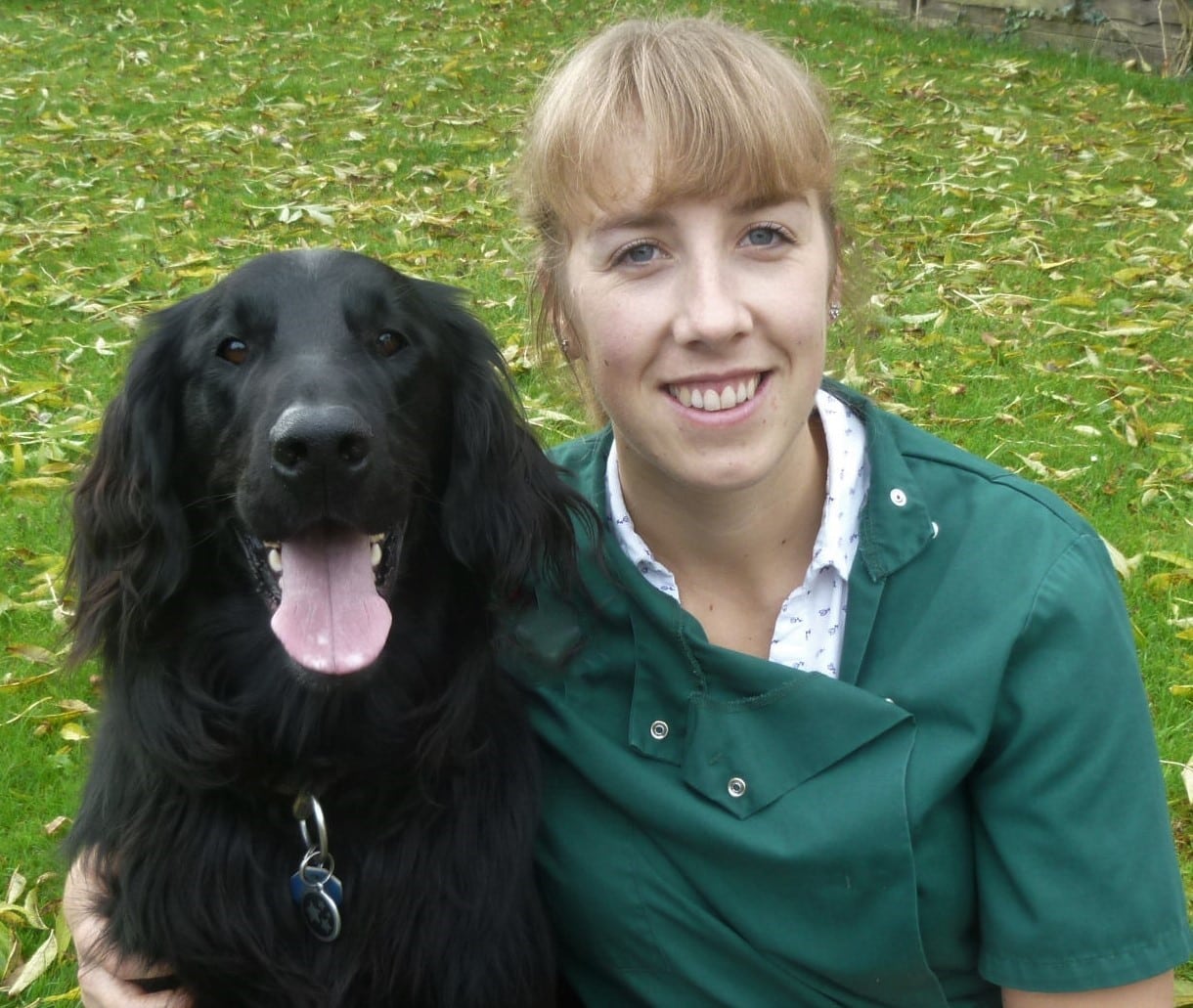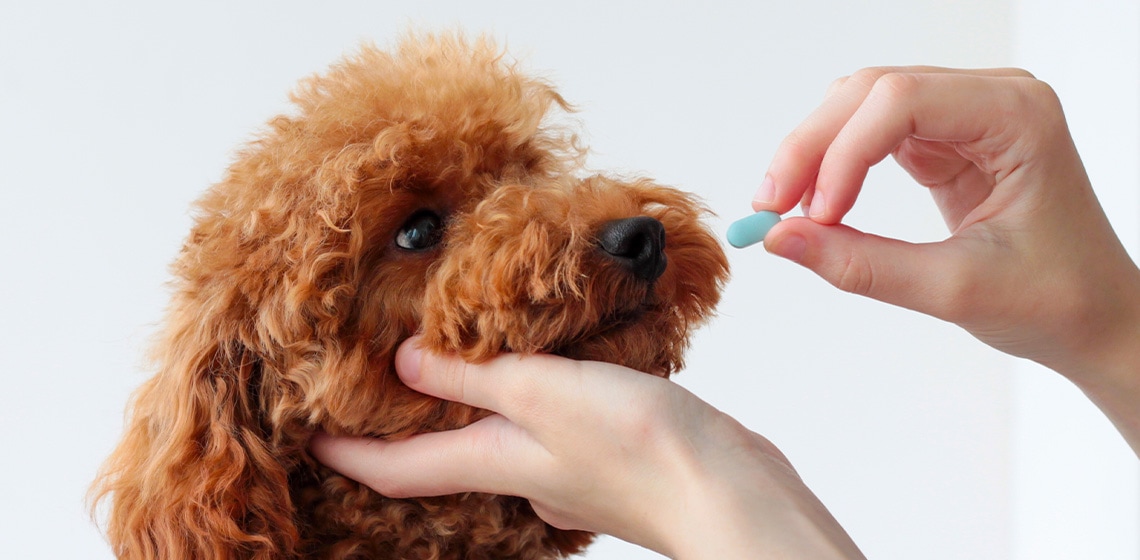Many people rely on melatonin to help improve the quality of their sleep, especially if they suffer from insomnia. Dogs can also suffer from sleep disturbances, so you might be wondering whether melatonin can be helpful for them. In this article, we will look at melatonin in more detail as well as its potential uses and side effects in our canine companions.
What is melatonin?
Melatonin is a hormone that helps to regulate sleep patterns. The production of this hormone is regulated by light levels. When it’s dark the pineal gland in the brain increases the amount of melatonin produced, leading to sleepiness.
If the brain doesn’t naturally produce enough melatonin, an artificial version can be administered. This supplement is more commonly used in people but is sometimes recommended for dogs too.
Melatonin is usually purchased as an over-the-counter human product. However, as it is not a prescription medication it is not heavily regulated. This means there can be variation in the quality of the supplements, and the recommended dosing on the packaging may be different between different products too. You must always speak to your veterinarian for their advice on what to use for your pet.
Melatonin is a hormone that helps to regulate sleep patterns.
What is melatonin used for in dogs?
Synthetic melatonin can be used for sleep issues in people, but in dogs, it is commonly recommended for the following reasons –
- Alopecia – If other causes of hair loss have been ruled out (such as parasites, allergies, or skin infections) then your dog may be diagnosed with seasonal (or flank) alopecia or a condition called alopecia X. These conditions causes hair loss, but the exact reason is unclear. Melatonin can be helpful for some animals.
- Anxiety – Melatonin can act as a natural calming agent, useful for dogs suffering from separation anxiety, noise phobias, or a stressful event like a house move. One study has proved that melatonin can be used to help calm dogs before anesthetics, meaning lower doses of drugs might be used.
- Insomnia – Melatonin helps to control sleep-wake cycles, so it can help to treat sleep disorders. While insomnia is less common in dogs than it is in people, there may be some instances where melatonin might be useful. Insomnia may be seen in animals suffering from cognitive dysfunction (often age-related), medication side effects, or anxiety.
- Treatment of hyperadrenocorticism (Cushing’s disease) – Melatonin may have beneficial effects for the treatment of hyperadrenocorticism, a condition that causes the body to produce too much cortisol.
- Treatment of hepatopathies – Certain liver problems may be improved with melatonin, including idiopathic vacuolar hepatopathy, though more studies are required.
It is important to follow your vet’s advice regarding this supplement, however, in some cases, a more proven treatment might be available.
Melatonin can act as a natural calming agent, useful for dogs suffering from separation anxiety, noise phobias, or a stressful event like a house move.
How is melatonin administered to dogs?
Melatonin is given orally, usually in the form of a capsule, tablet, or liquid solution, which can be given with or without food. Very occasionally a slow-release implant version of melatonin may be recommended, which would be placed by your veterinarian.
Is any monitoring required while my dog is on melatonin?
Your vet will probably wish to see your pet at regular intervals while he is on melatonin so that they can assess whether an improvement is occurring. There are no specific blood tests or monitoring tools for dogs on melatonin.
It is important to follow your vet’s advice regarding this supplement, however, in some cases, a more proven treatment might be available.
What are the side effects of melatonin in dogs?
Plumb’s Veterinary Drug Handbook states that melatonin is usually quite safe in dogs. Side effects are rare and are usually limited to sedative effects as well as potentially affecting sex hormone secretion and fertility.
Melatonin may potentiate the effects of benzodiazepines and succinylcholine. Studies are limited in terms of melatonin’s interactions with other medications, however, so care should be taken when using it alongside existing prescriptions.
There is also little information about overdosage of melatonin in dogs but a single overdose is unlikely to cause too many ill effects.
The ASPCA does warn, however, that some melatonin products could contain toxic xylitol. This artificial sweetener is safe for people and found in many medications and sugar-free products, but it is extremely dangerous to dogs. Check the ingredients on the packaging.
Side effects are rare and are usually limited to sedative effects as well as potentially affecting sex hormone secretion and fertility.
Is melatonin effective?
Much of what we know about melatonin is anecdotal, with extensive studies limited in dogs. You should always take your dog to a veterinarian to get an official diagnosis of their condition, before considering melatonin supplementation. The product will work best when given under veterinary supervision, in appropriate cases.
Conclusion
Melatonin is a supplement more commonly used in people than it is in dogs at present. However, there is some indication that it could be useful in certain situations, including alopecia, anxiety, and even hormonal complaints like hyperadrenocorticism. Always speak to your vet about your pet’s treatment and don’t administer supplements without their supervision.
FAQ
Speak to your veterinarian if you think your dog would benefit from melatonin. They will be able to advise you on dosage, but also whether any other treatment options would be more suitable. You must never give your dog your own medications or supplements unless under veterinary supervision.
Melatonin can be useful in the treatment of certain health conditions in dogs. Under the supervision of your vet, you may notice an improvement in your dog’s medical complaint. However further studies are needed in many cases, so melatonin may not be successful in every situation.
It is unlikely that 5mg of melatonin will harm your dog. According to Plumb’s Veterinary Drug Handbook, the side effects of this naturally occurring hormone are limited. Depending on the condition being treated, doses in this region are often safely recommended for dogs.

Rebecca is a companion animal vet who has always had a passion for writing and client communication. Since her graduation from the Royal Veterinary college in 2009, she has gained a wealth of experience in first opinion small animal practice, in both clinical and managerial roles. She currently works in the South West and deals with a variety of routine and emergency appointments, but particularly enjoys medicine cases. Outside of work and writing, she enjoys spending time with her family, including her bouncy flat-coated retriever George!








